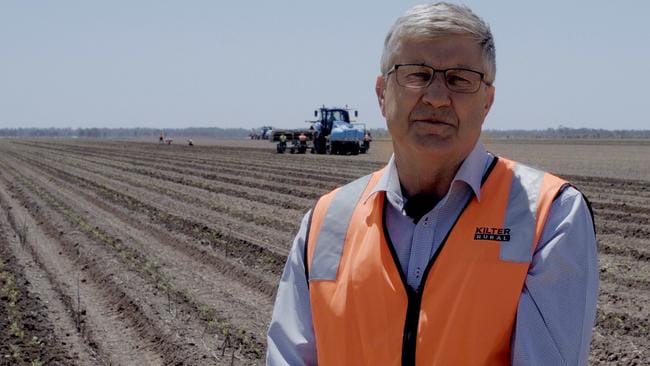Listed Fund Managers Cultivate Growth in Agriculture: Regal and Soul Patts Lead the Way

The agricultural sector, a cornerstone of the global economy, is attracting significant attention from listed fund managers seeking diversified investment opportunities. Two prominent players, Washington H. Soul Pattinson (WHSP) and Regal Funds Management, are demonstrating innovative approaches to investing in agriculture.
WHSP: A Diversified Approach
WHSP, a diversified investment company with a history dating back over a century, has built a substantial agricultural portfolio valued at over $500 million. This portfolio encompasses 12 farmland assets spanning 5,162 hectares and includes 29,363 megaliters (ML) of water rights. WHSP's strategy centers on direct investments in agricultural properties and businesses, with a strong emphasis on sustainable farming practices and generating long-term value.
Regal Funds Management: Capitalizing on Water Scarcity
Regal Funds Management, through its subsidiary Kilter Rural, has carved a niche by focusing on water rights in Australia. Kilter Rural acquires water entitlements and leases them to farmers, generating consistent revenue through rental income. Euan Friday, Kilter Rural's investment chief, predicts a surge in water prices due to increasing demand and government intervention, creating a compelling investment thesis. With $300 million already invested in water entitlements, Kilter Rural aims to expand its fund in the coming years significantly.
The Investment Case for Agriculture
Investing in agriculture offers several advantages, including:
- Uncorrelated Returns: Agricultural investments often exhibit a low correlation with traditional asset classes like stocks and bonds, providing diversification benefits to portfolios.
- Long-Term Value Creation: Agriculture is essential for human survival, and the demand for food and other agricultural products is expected to grow as the global population increases. This underlying demand supports the long-term value of agricultural investments.
- Sustainable Practices: Many agricultural investments, like those made by WHSP and Kilter Rural, prioritize sustainable farming practices, which can have positive environmental and social impacts.
The Australian Water Market: A Unique Opportunity
Australia's water market, valued at $55 billion, presents a unique investment opportunity. The southern Murray-Darling Basin, a vast agricultural region, accounts for 70% of Australia's available water supply. Kilter Rural's Murray-Darling Basin Balanced Fund, focused on water entitlements in this region, has delivered a 6% annualized return over the past five years, highlighting the potential for attractive returns in this market.
Investing in Agriculture: How to Get Exposure
Investors seeking exposure to agricultural investments have several options:
- Listed Companies: Investing in companies like WHSP and Regal Partners Limited provides exposure to their diversified agricultural portfolios.
- Dedicated Agricultural Funds: Kilter Rural's water funds offer direct exposure to water entitlements and the potential for attractive returns.
- Direct Investment: Investors with sufficient capital and expertise can directly invest in agricultural assets like farmland or water entitlements.
The Future of Agricultural Investments
The growing interest from listed fund managers like WHSP and Regal Funds Management signals a promising future for agricultural investments. The increasing global demand for food and the growing focus on sustainable farming practices create a compelling investment thesis. As the world grapples with climate change and resource scarcity challenges, the agricultural sector is poised to play a crucial role in addressing these issues.
Disclaimer Author owns shares in this
The information on this website is published is limited to factual information or (at most) general financial advice only. That means, the information and advice does not take into account your objectives, financial situation or needs. It is not specific to you, your needs, goals or objectives. Because of that, you should consider if the advice is appropriate to you and your needs, before acting on the information. If you don’t know what your needs are, you should consult a trusted and licensed financial adviser who can provide you with personal financial product advice. In addition, you should obtain and read the product disclosure statement (PDS) before making a decision to acquire a financial product